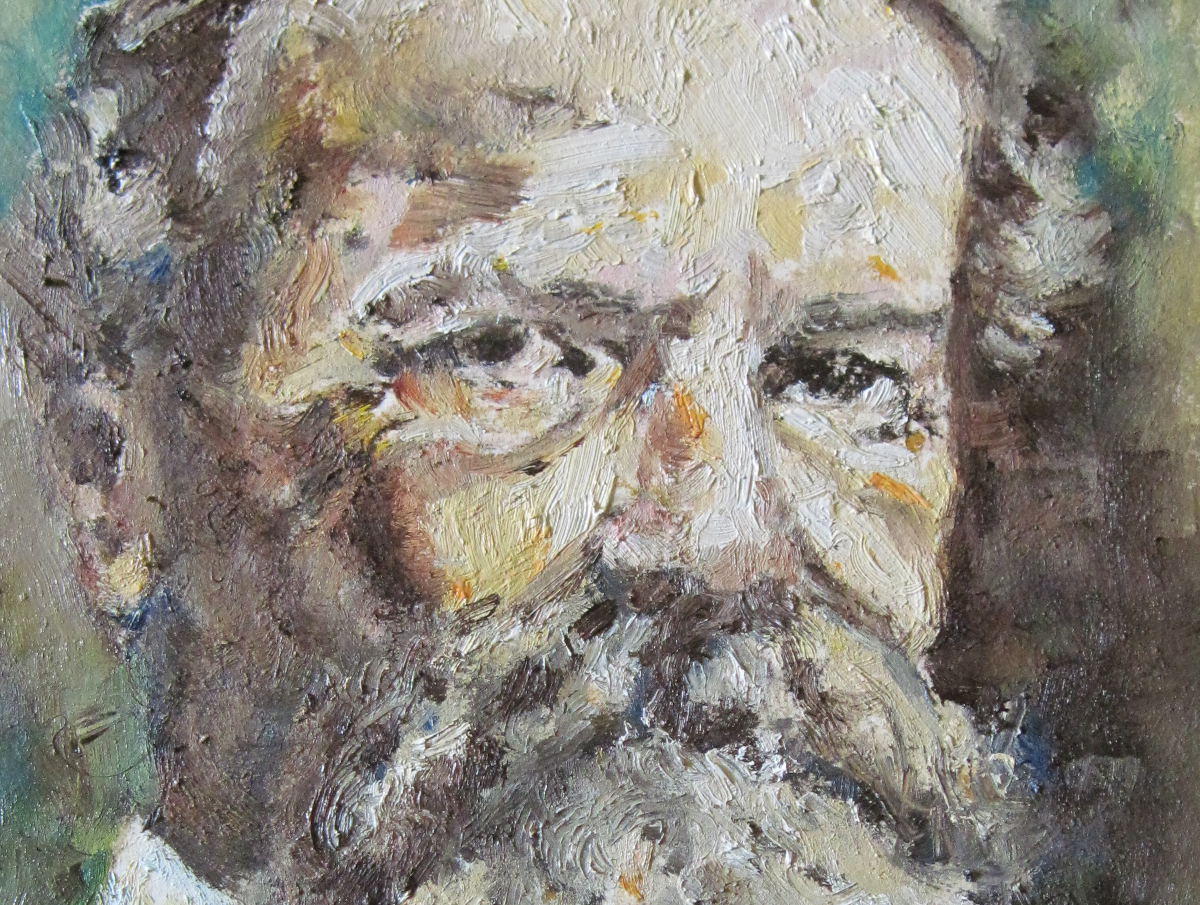Consciousness as a Memory System

Above is a closeup from my oil portrait of William James. I've posted this art here before, and have included it again because James is relevant to this post.
A new paper recently appeared in the journal Cognitive and Behavioral Neurology. Titled "Consciousness as a Memory System," this paper suggests that consciousness isn't in the driver's seat at all. It doesn't control things, but "binds elements of an experience together, allowing for the creation of a memory trace that can include multisensory details. Over time, consciousness provides a medium in which these memory traces can be replayed—a mechanism that is key to their successful storage."
By consciousness, the authors mean "what William James (1890) meant when he used the term: our own personal experience of perceiving, thinking, emoting, and acting. Self-consciousness, that is, being conscious of our selves as thinking entities (à la Descartes), would certainly be included in what we mean, but only a small part of it."
The big idea is that consciousness grew out of the episodic memory system to access memories that make it possible to understand the present moment and make predictions about the future. Problem solving happens within conscious awareness (working memory) via episodic memory retrieval. The authors basically agree with the global workspace theory of consciousness, and add to this theory by attempting to explain its evolutionary origins.
Here's a SciTech Daily quote about the new theory:
"What is completely new about this theory is that it suggests we don't perceive the world, make decisions, or perform actions directly. Instead, we do all these things unconsciously and then—about half a second later—consciously remember doing them. ... We knew that conscious processes were simply too slow to be actively involved in music, sports, and other activities where split-second reflexes are required. But if consciousness is not involved in such processes, then a better explanation of what consciousness does was needed."
Questions
Yesterday, I wrote about unconscious anticipation of the future and how this anticipation may result in unconscious behavior that better positions us for this future. This new paper takes the idea further by suggesting that the unconscious is mostly running the show, making perceptions of executive control somewhat illusory.
One thing the new theory resolves is the question of how musicians and athletes can make decisions more quickly than most people are able to consciously react. It takes a minimum of about half a second for stimuli to be perceived and acted upon, yet baseball players can decide where to swing a bat in 200 milliseconds, and musicians can respond to cues just as fast. They can't possibly be making these choices with conscious awareness as we understand it, in a biochemical sense. So their unconscious minds might be making these choices for them.
My own experience with visual art adds support for the new theory. One of the greatest pitfalls in painting is the failure to see a work-in-progress as it is, as opposed to a memory of the work from seconds or minutes prior. For me, it only takes about three seconds of looking at a piece of art before my memory takes over and shows me the art as is was, embellished with artifacts of the mind, rather than showing me the art as it actually appears. Now I'm wondering if even the freshest perceptions of the work are merely the most recently encoded memories.
I don't know what all this might imply, but it's fun to think about. If consciousness is replaying memory traces, not exercising control, then what does that suggest about the self? Although I'm not among them, many people perceive themselves to be identical to their conscious awareness. What might these people make of the new theory? And is there a way to incorporate the implications of this into areas like education or psychology?
Read my novels:
- Small Gods of Time Travel is available as a web book on IPFS.
- The Paradise Anomaly is available in print via Blurb and for Kindle on Amazon.
- Psychic Avalanche is available in print via Blurb and for Kindle on Amazon.
- One Man Embassy is available in print via Blurb and for Kindle on Amazon.
- Flying Saucer Shenanigans is available in print via Blurb and for Kindle on Amazon.
- Rainbow Lullaby is available in print via Blurb and for Kindle on Amazon.
- The Ostermann Method is available in print via Blurb and for Kindle on Amazon.
- Blue Dragon Mississippi is available in print via Blurb and for Kindle on Amazon.
See my NFTs:
- Small Gods of Time Travel is a 41 piece Tezos NFT collection on Objkt that goes with my book by the same name.
- History and the Machine is a 20 piece Tezos NFT collection on Objkt based on my series of oil paintings of interesting people from history.
- Artifacts of Mind Control is a 15 piece Tezos NFT collection on Objkt based on declassified CIA documents from the MKULTRA program.
https://twitter.com/481423241/status/1584676817402679296
The rewards earned on this comment will go directly to the people sharing the post on Twitter as long as they are registered with @poshtoken. Sign up at https://hiveposh.com.
Nice post! I think I heard somewhere how 95% of our existence is unconscious processes, or something to that effect. I see interesting parallels between our blog posts today. I might be taking a leap here but I see lots of connections between the unconscious with the yin/feminine energy!
Definitely. I've never thought of my unconscious as feminine before, but you might be onto something. Communicating with the unconscious is all about allowing things to unfold and being present for the process. Allowing and being are for sure more feminine.
yes! and the masculine tends to rationalize, predict, and control. the feminine is unfolding, mysterious, and emerging as it becomes aware of itself. all of these are words though, compared to the real thing ;)